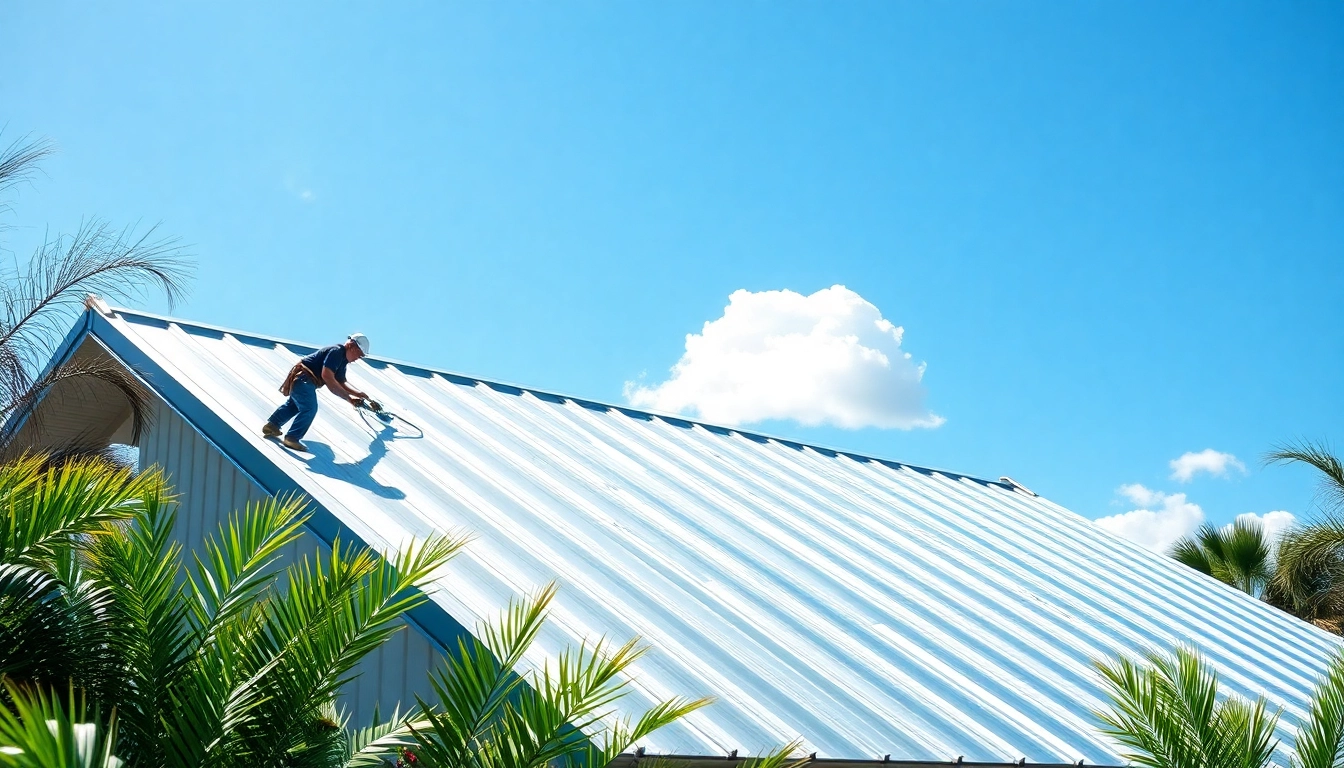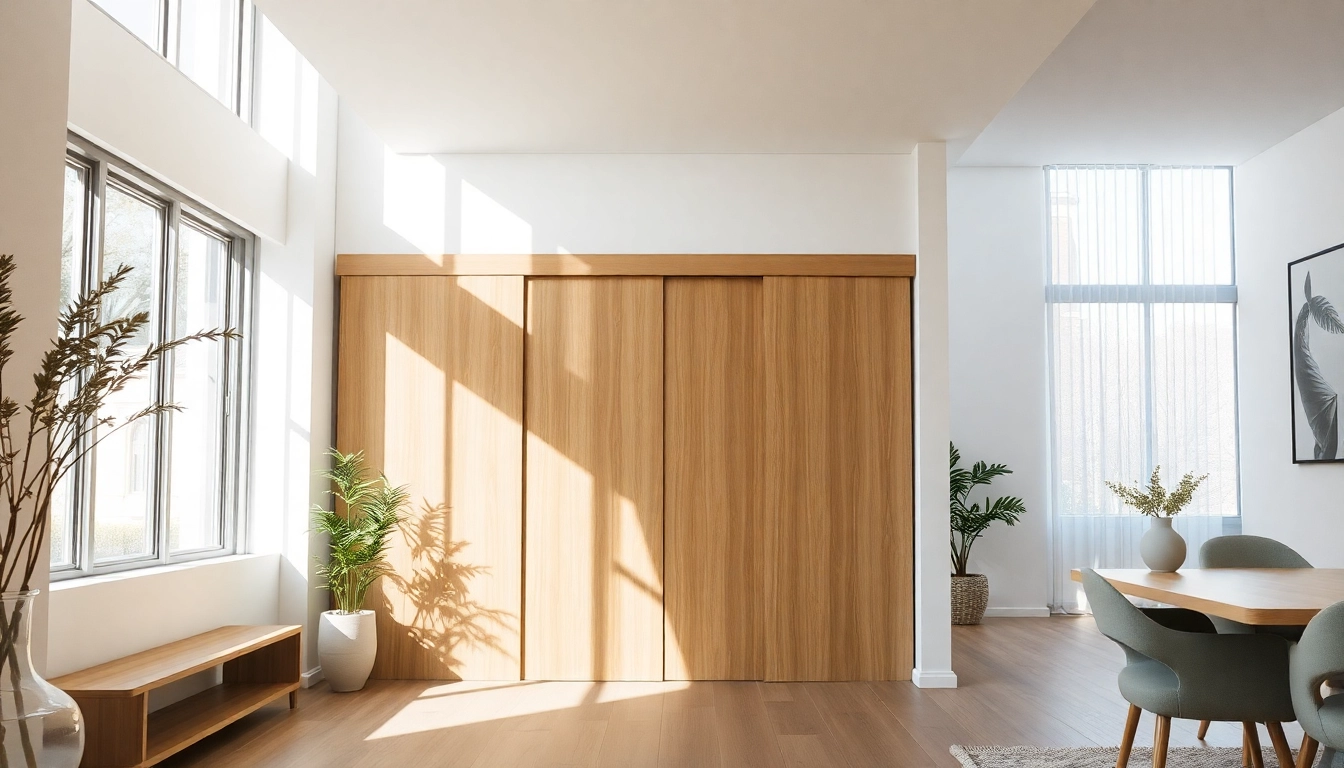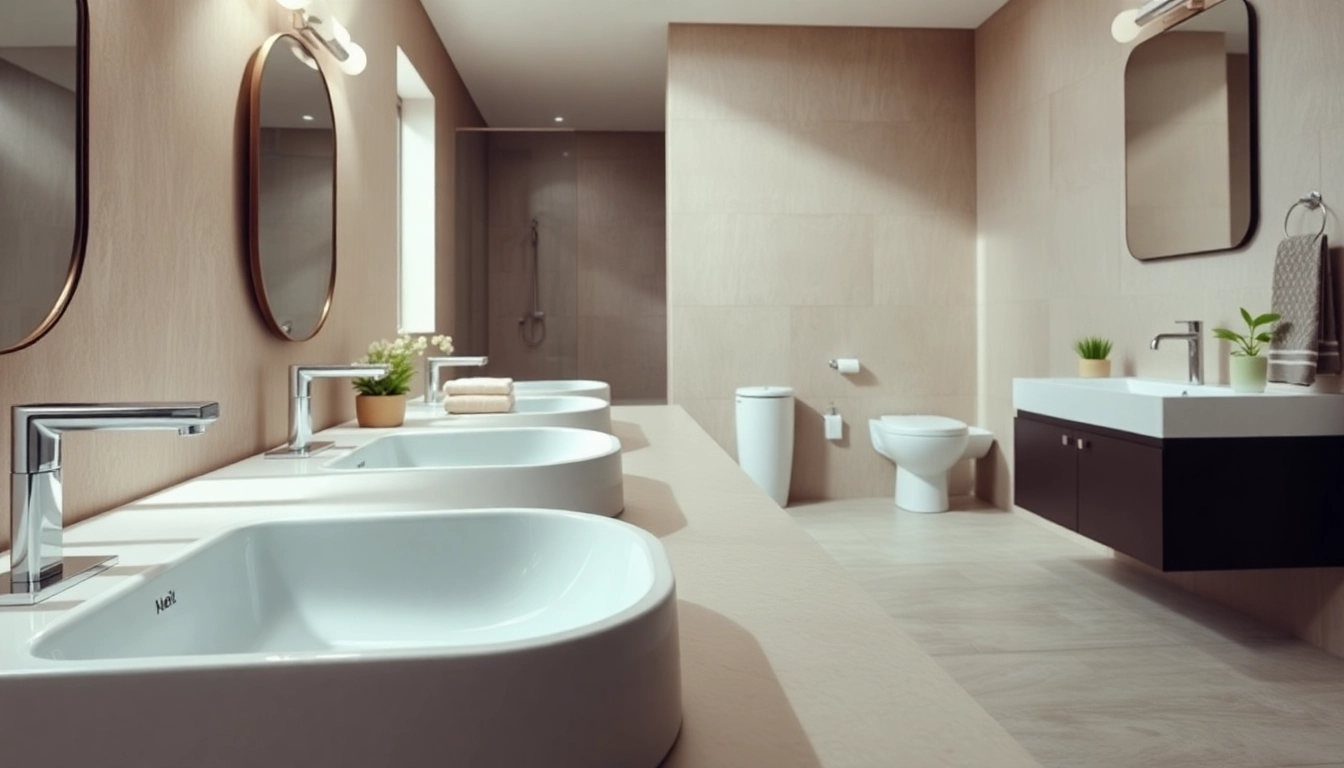Understanding Florida Metal Roofs
Metal roofs have become a popular choice for homeowners in Florida, driven by their durability and resilience against the state’s unique climate challenges. Often associated with benefits such as energy efficiency and longevity, florida metal roof options are quickly ringing through communities across the Sunshine State. From coastal properties facing high winds to homes within lush inland areas, understanding what metal roofs can offer can assist in making a well-informed decision.
What is a Florida Metal Roof?
A Florida metal roof refers to roofing systems constructed from metal materials, designed specifically for the harsh weather conditions typical in Florida, such as high humidity, hurricane winds, and frequent rain. Primarily consisting of aluminum, steel, or alloy compositions, these roofs are built to withstand the aggressive environmental factors while offering aesthetic versatility. Metal roofing can come in various styles, including standing seam, corrugated panels, and shingles, catering to various architectural designs and personal preferences.
Benefits of Choosing a Metal Roof in Florida
Durability and Longevity
One of the most touted benefits of metal roofs is their longevity. While traditional roofing materials may last 15 to 30 years, metal roofs can last 40 to 70 years with proper maintenance. This characteristic is particularly valuable in Florida, where extreme weather events can lead to frequent roof replacements and repairs.
Wind and Corrosion Resistance
Florida homeowners frequently face heavy winds and storms, making wind resistance a critical feature. Metal roofs are designed to adhere to strict building codes that ensure they can withstand wind velocities of up to 140 mph, depending on the specific installation. Additionally, most metal roofing systems include corrosion-resistant coatings and materials, making them suitable for coastal areas prone to saltwater exposure.
Energy Efficiency
Incorporating reflective coatings can make metal roofs exceptionally energy-efficient. These roofs reflect sunlight, reducing heat absorption, which can lead to lower energy bills during sweltering summer months. This contributing factor aligns with Florida’s goal of sustainable living practices.
Common Myths About Florida Metal Roofs
Myth: Metal Roofs are Noisy
Many people associate metal roofs with noise during rain or hailstorms. However, this myth is largely exaggerated. When properly installed with underlayment and insulation, they have the capacity to dampen sound significantly, often making them quieter than traditional roofing types.
Myth: Metal Roofs Will Rust
Contrary to popular belief, today’s metal roofs are manufactured with rust-resistant materials, such as aluminum or coated steel, which significantly mitigates these concerns. In fact, many roof systems come with warranties that cover corrosion and rust for decades, proving their reliability.
Myth: Metal Roofs are Unattractive
Another misconception is that metal roofs lack aesthetic appeal. In reality, they are available in a wide array of colors, finishes, and styles, allowing homeowners to choose designs that complement their home’s look while maintaining functionality.
Types of Florida Metal Roof Materials
Aluminum vs. Steel: Choosing the Right Metal
When it comes to material selection, homeowners in Florida predominantly choose between aluminum and steel. Aluminum is lightweight and naturally corrosion-resistant, making it an excellent choice for coastal areas. On the other hand, steel is robust and more affordable, though it’s essential to choose galvanized or Galvalume varieties to resist rust. Both options have their merits, so personal needs, budget, and location should guide the decision.
Popular Style Options for Metal Roofs in Florida
Florida homeowners can choose from several styles of metal roofing:
- Standing Seam: Characterized by raised seams that interlock, standing seam roofs offer exceptional durability and weather-tightness.
- Corrugated Panels: Commonly used in agricultural applications, these panels are lightweight and easy to install, while providing excellent waterproofing.
- Metal Shingles: Offering a traditional appearance with the advantages of metal, these shingles can mimic the look of asphalt or slate.
Coatings and Finishes: Enhancing Durability
Metal roofing materials are often coated with protective layers that enhance their durability. Typical finishes include Kynar paint, which offers both aesthetic and protective benefits by reflecting UV rays, preventing fading, and resisting corrosion.
Cost Considerations for Florida Metal Roofs
Factors Influencing Metal Roof Pricing
Several factors can impact the price of metal roofing systems in Florida, including:
- Material Type: The choice between aluminum and steel dictates pricing, with aluminum typically being more expensive.
- Roof Design: More intricate designs or styles may require higher labor costs due to complexity.
- Installation Method: Most quality roofs will include warranties; however, the method of installation can alter labor costs.
Estimating Installation Costs for Florida Homes
While the initial costs for metal roofing systems can be higher than shingle roofs—averaging between $5 and $12 per square foot—the investment pays off in the long run due to lower maintenance costs and extended lifespan. When budgeting, it’s crucial to consider both material and labor expenses to accurately estimate total installation costs.
Long-Term Savings with Florida Metal Roofs
Despite the higher upfront cost, metal roofs can lead to substantial savings over time. Their longevity and resistance to harsh weather conditions mean reduced maintenance and replacement costs. Additionally, their energy efficiency can translate to lower utility bills, offering a clear long-term financial benefit.
Installation Process for Florida Metal Roofs
Steps to Prepare Your Home for Roof Installation
Before the installation of a metal roof, several steps are crucial for a smooth process:
- Inspection: A thorough roof inspection identifies any underlying issues that need correction.
- Selection: Choosing the right metal type, color, and style according to personal preferences and environmental factors.
- Permitting: Obtain necessary permits to adhere to local building codes.
Hiring the Right Contractor in Florida
Selecting a qualified contractor can make a significant difference in the installation process and outcome. Look for local contractors with specific experience in metal roofing systems and verify licenses, insurance, and customer reviews for reliability.
Post-Installation Care and Maintenance Tips
Maintaining your metal roof largely involves periodic checks and simple cleaning tasks. Regular inspections after severe weather events can help identify potential issues early. Pressure washing to remove dirt and debris every few years can enhance both appearance and performance.
Regulations and Building Codes for Florida Metal Roofs
Understanding Florida’s Building Codes
Florida’s building regulations concerning roofing are stringent, primarily due to the threat of hurricanes and extreme weather conditions. Homeowners must ensure that their metal roofing systems meet the local codes dictated by the Florida Building Commission. Compliance often necessitates specific testing and certification of materials used.
Material Approval Processes for Metal Roofs
Before installation, all roofing materials must be approved under state codes. This involves compliance with standards for wind resistance, fire safety, and energy efficiency. Contractors will usually manage compliance issues but being informed can facilitate a smoother process.
HOA Regulations Impacting Metal Roofing Choices
Many neighborhoods in Florida enforce Homeowners Association (HOA) guidelines that impact the type and color of roofing material used in the community. Understanding these regulations is necessary for avoiding fines or forced replacement after installation.



